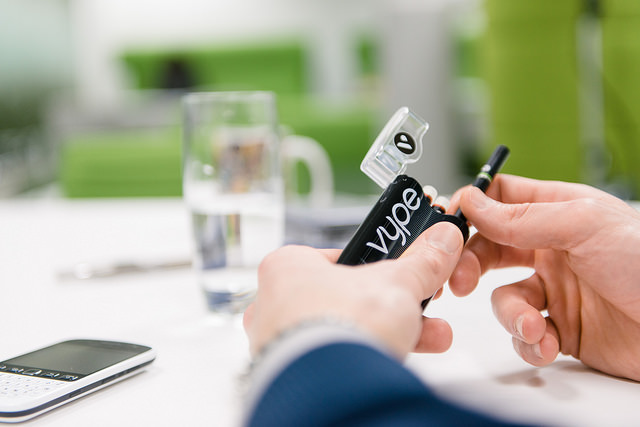Scientists at British American Tobacco say they have created the most comprehensive database of scientific test results for an electronic cigarette.
The results of the studies provide evidence that the use of a Vype ePen could be substantially less risky than is smoking a traditional cigarette.
The database was said to have been created using data collected from a series of scientific tests that could form the basis of a template to support health-related claims such as “reduced risk” for e-cigarettes and next generation products, such as tobacco-heating devices, when the use of those products was compared to that of conventional cigarettes.
“This is a very new consumer category and both consumers and regulators rightly want as much information as possible about the products available,” said Dr David O’Reilly, group scientific and R&D director at BAT.
“We believe a science-based approach is vital to gathering the evidence needed to demonstrate the reduced-risk potential of e-cigarettes and other products, which is why testing products like Vype ePen in this way is so important. We intend for this to be the first of many applications of our scientific assessment framework,” he said.
The application of BAT’s approach to the scientific assessment of potentially reduced-risk products is reported today in the journal Regulatory Pharmacology and Toxicology, where the results of 17 published studies on Vype ePen are described.
The tests included Preclinical studies that demonstrated the relatively simple composition of Vype ePen vapor compared to that of conventional cigarette smoke: that demonstrated there were about 95 percent less toxicants in Vype ePen vapor than in smoke. Further tests revealed that this vapor had no biological impact on human cells tested in the laboratory, or at least a much-reduced impact when compared to that of conventional cigarette smoke.
Clinical Studies, which involved humans, revealed that Vype ePen vapor delivered nicotine to the consumer as efficiently as cigarette smoke did, which is an indicator of whether the product might provide smokers with a satisfactory alternative to a cigarette.
Population studies, which use predictive modelling to estimate an overall harm reduction effect of the product on a population, indicated that the wide availability of an e-cigarette such as a Vype ePen could have an overall harm-reduction effect because more people might quit smoking when e-cigarettes were widely available.
In a press note, BAT said that, taken together, these results formed the basis of a comprehensive dossier of scientific data that laid the groundwork for establishing the Vype ePen’s reduced-risk potential.
‘This dossier of results presents the kind of information that regulators like the US Food and Drug Administration want when any company submits a Modified Risk Tobacco Product application in order to introduce novel reduced-risk tobacco products to the US market,’ the note said.
‘It can take years to create such a dossier and our scientists say that it would be impractical to create a new dossier every time a product is tweaked.’
“This category is so fast moving that there are new and improved products appearing all the time,” said Dr James Murphy, head of reduced risk substantiation at BAT. “If for example, a scientific dossier was required before these products could go on the market, this could drastically impact the availability of new and improved products and their value in tobacco harm reduction.
“Importantly, this sort of framework could provide datasets for product families so that full scientific tests wouldn’t need to be done with every new generation of the same product – making the innovation process faster whilst still giving consumers and regulators assurances around the relative risk of each product. This could mean improved products with harm reduction potential can be developed, assessed and brought to market more quickly without duplicating tests. We are urging regulators and public health officials to look at this methodology in this context.” Murphy said.











